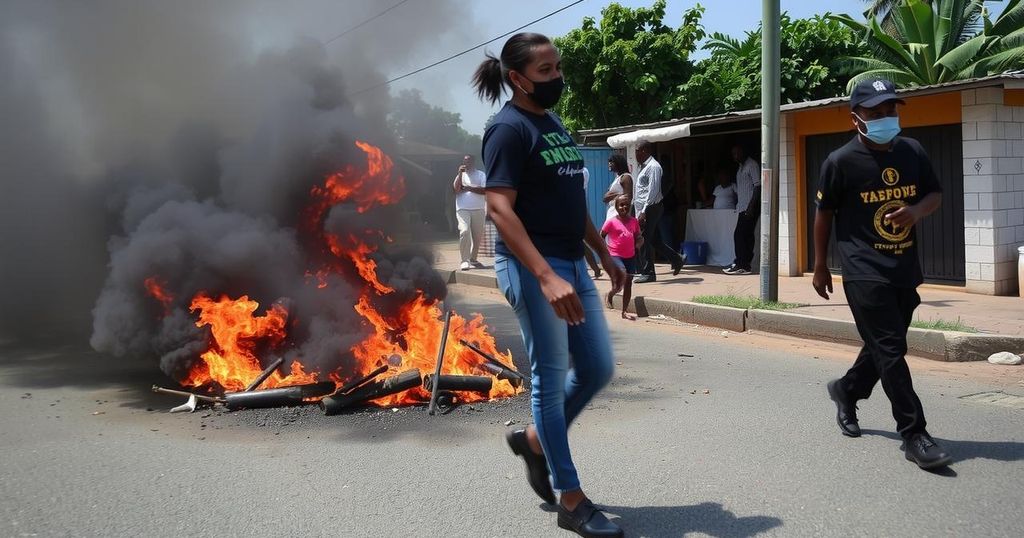Mozambique’s Post-Election Violence Claims 125 Lives in Just Three Days
Mozambique experienced devastating post-election violence, resulting in 125 deaths over three days amid opposition protests over alleged electoral fraud. The latest election confirmed Frelimo’s Daniel Chapo as president, sparking unrest characterized by violent confrontations and looting. The NGO Plataforma Decide reported a total of 252 deaths since the onset of tension in October, with significant arrests and claims of security forces inciting riots.
In Mozambique, post-election violence has resulted in the tragic death of approximately 125 individuals over a span of just three days, as reported by a non-governmental organization. The unrest stemmed from protests led by the opposition in response to the recent presidential election results. International observers had raised troubling concerns regarding potential irregularities in the elections held on October 9, where Daniel Chapo of the Frelimo party was declared the victor with 65.17 percent of the votes. This outcome provoked widespread demonstrations, which quickly escalated into violent confrontations with law enforcement, leading to significant property damage and public disorder.
The unrest saw an alarming escalation on Tuesday, with the government confirming a death toll of 21 within the first 24 hours of protests and riots across key cities. Additionally, a mass escape attempt near the capital resulted in casualties, further compounding the severity of the situation. According to Plataforma Decide, a prominent NGO, the fatalities linked to the violence since the beginning of October have now reached 252, with regions surrounding the capital Maputo and major cities such as Beira and Nampula being the most severely impacted.
The NGO also disclosed that over 4,000 individuals have been apprehended since the beginning of the unrest, with 137 arrests recorded in the recent three-day period alone. Venancio Mondlane, the exiled leader of the opposition and Chapo’s main rival, has openly alleged that the elections were fraudulent. He further accused the security forces of inciting recent disturbances to justify declaring a state of emergency and suppressing protests. Although some barricades in Maputo had been removed, significant disruptions to public transport and ongoing tensions persisted, indicating the continuing unrest within the nation.
The violence in Mozambique has erupted in a context where the Frelimo party has held power since 1975, a situation compounded by allegations of election fraud and irregularities during the recent presidential election. Following an election on October 9, which was marred by accusations from the opposition, public dissent quickly transformed into violent protests. The international community has expressed concern about the conduct of the elections, but the nation’s highest court upheld the election results, igniting unrest and civil disorder throughout the country. Elections in Mozambique have historically been contentious, often leading to significant political upheaval.
In summary, the recent surge of violence in Mozambique, resulting in the deaths of 125 individuals, reflects deep political tensions following the disputed presidential election. The opposition’s claims of electoral fraud have exacerbated public dissatisfaction and incited protests that have turned violent. With growing numbers of fatalities and widespread arrests, the situation remains precarious, highlighting the urgent need for dialogue and resolution to restore stability in the country.
Original Source: www.barrons.com




Post Comment